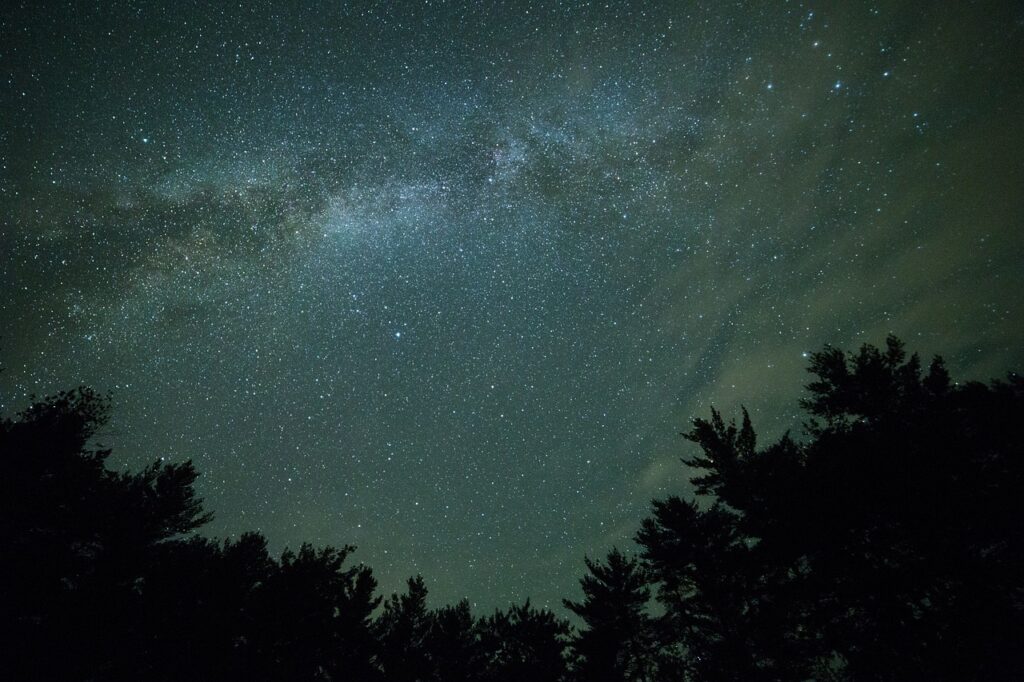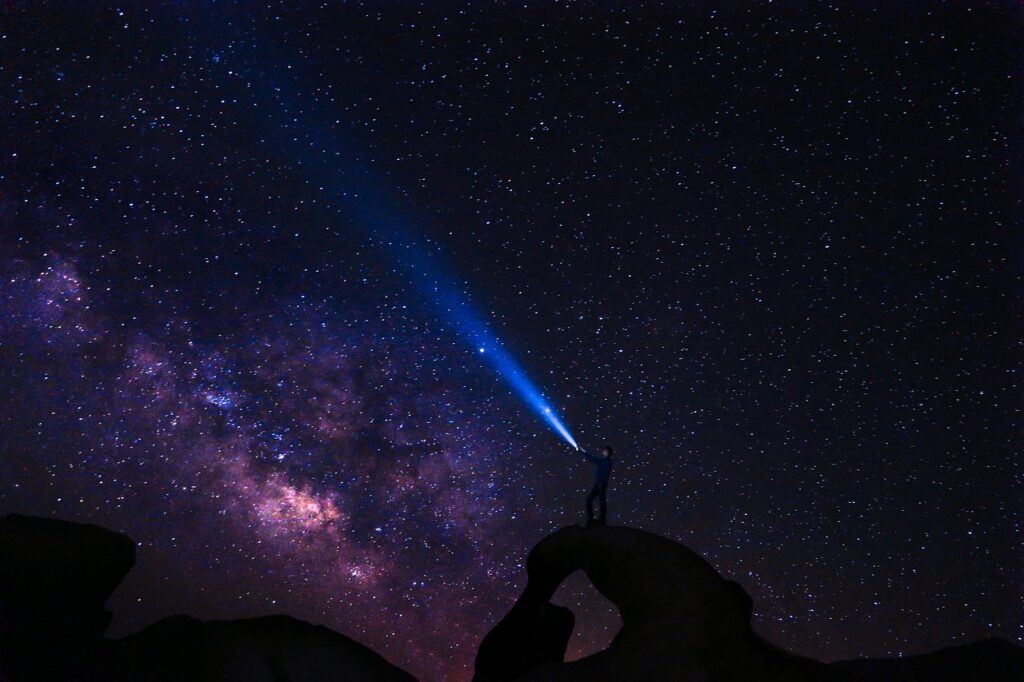Imagine lying on a tranquil beach, gazing up at the vast night sky as it twinkles with countless stars. Now, imagine doing that on the stunning Greek Islands, where the night sky is said to be a celestial masterpiece. In this enchanting guide, you’ll uncover the secrets of the Greek Islands’ night sky, from the mystical constellations that adorn it to the best spots for stargazing. So, grab your telescope and prepare for an extraordinary journey through the celestial wonders of the Greek Islands’ night sky.
Choosing the Right Greek Island for Stargazing
When it comes to stargazing, the Greek Islands offer a truly magnificent experience. With their clear skies and minimal light pollution, these islands provide the perfect backdrop for observing the celestial wonders above. However, not all Greek Islands are created equal when it comes to stargazing opportunities. Factors such as low light pollution, accessibility, and accommodation options play a crucial role in determining the best island for your stargazing adventure.
Islands with Low Light Pollution
To truly appreciate the beauty of the night sky, it is essential to escape the effects of light pollution. Opting for Greek Islands with low light pollution will significantly enhance your stargazing experience. Islands like Rhodes, Santorini, Crete, and Mykonos are renowned for their clear night skies and limited light interference. These destinations offer the perfect balance between stunning natural landscapes and minimal urban development, ensuring an uninterrupted view of the stars.
Accessibility and Accommodation Options
Another important consideration when choosing a Greek Island for stargazing is accessibility and accommodation options. A conveniently located island with easy transportation access can save you valuable time and effort, allowing you to focus more on your stargazing adventure. Additionally, diverse accommodation options ranging from luxurious resorts to cozy guesthouses ensure that you have a comfortable base from which to explore the night sky. Researching and planning ahead will help you find an island that suits your needs and enhances your stargazing experience.
Understanding Greek Islands’ Night Sky
Before embarking on your stargazing adventure, it’s helpful to have a basic understanding of the Greek Islands’ night sky. Factors such as climate and weather patterns, celestial objects visible, and astrological events can greatly contribute to the overall experience.
Climate and Weather Patterns
The favorable Mediterranean climate of the Greek Islands plays a significant role in creating ideal conditions for stargazing. With clear skies, low humidity, and minimal cloud cover, the islands offer favorable weather patterns for observing the night sky. However, it’s important to consider the seasonal variations in weather as they can impact visibility. Planning your stargazing trip during the island’s driest and clearest months will maximize your chances of witnessing stunning celestial displays.
Celestial Objects Visible
The Greek Islands’ night sky offers a breathtaking tapestry of celestial objects waiting to be explored. From dazzling constellations to distant galaxies, the possibilities are endless. Gazing upwards, you will have the opportunity to spot prominent constellations like Orion, Ursa Major, and Cygnus, each with its own mythological tale. Additionally, the islands provide fantastic visibility to witness the Milky Way, shooting stars, and even the occasional passing comet. The vastness of the Greek Islands’ night sky will leave you in awe of the universe’s wonders.
Astrological Events
For those interested in witnessing celestial events, the Greek Islands offer a front-row seat to several astronomical phenomena. From meteor showers like the Perseids and Geminids to lunar eclipses and planetary alignments, there’s always something fascinating happening in the night sky. Keeping track of upcoming events and aligning your stargazing trip accordingly will ensure an unforgettable experience. Just imagine the thrill of witnessing shooting stars streaking across the sky or observing the moon as it undergoes a stunning eclipse.

Best Time to Stargaze in Greek Islands
To make the most of your stargazing adventure in the Greek Islands, timing is everything. Considering seasonal variations, moon phases, and lunar influence will help you plan the perfect trip.
Seasonal Considerations
When planning your stargazing trip, it’s crucial to take the seasons into account. Spring and autumn are generally considered the best times to visit the Greek Islands for stargazing. These seasons offer pleasant temperatures, clear skies, and reduced tourist crowds. Summer, while popular for vacationers, can be accompanied by slightly hazier skies due to increased humidity. Winter, on the other hand, may present colder temperatures, but the reduced tourism activity can provide a more secluded and peaceful stargazing experience.
Moon Phases and Lunar Influence
The moon has a significant impact on stargazing conditions. A full moon, with its bright illumination, can diminish the visibility of stars and other celestial objects. Conversely, moonless nights during the new moon phase offer the darkest skies, making it ideal for observing faint objects like galaxies and nebulae. Planning your stargazing adventure around the moon’s phases can significantly enhance your experience. Consulting a lunar calendar and choosing dates with minimal lunar interference will allow you to fully immerse yourself in the splendor of the Greek Islands’ night sky.
Preparing for Stargazing Adventure
To ensure a successful and enjoyable stargazing adventure, appropriate preparation is key. Considerations such as equipment and gear, clothing and essentials, and safety guidelines will contribute to a memorable experience under the stars.
Equipment and Gear
Having the right equipment and gear will greatly enhance your ability to observe the night sky. A good quality telescope or binoculars will allow you to focus on celestial objects with clarity and detail. Additionally, a star chart or a mobile stargazing app will help you navigate the constellations and identify various celestial bodies. Don’t forget to pack spare batteries, a sturdy tripod, and a comfortable chair to make your stargazing experience as smooth as possible.
Clothing and Essentials
The night air in the Greek Islands can get chilly, even during the warmer months. Dressing in layers and bringing warm clothing, including jackets, hats, and gloves, will keep you comfortable throughout the night. Additionally, insect repellent will help ward off any bugs that may interrupt your stargazing session. Bringing a thermos of hot beverages and snacks will also ensure that you stay nourished and energized during your stargazing adventure.
Safety Guidelines
Stargazing in the Greek Islands is an enchanting experience, but it’s important to prioritize safety. Be mindful of your surroundings and avoid venturing into unfamiliar or potentially hazardous areas. It’s always a good idea to stargaze with a companion, especially if you’re in a remote location. Be cautious of any wildlife that may be present and respect the natural environment. By adhering to these safety guidelines, you can fully enjoy your stargazing adventure while staying safe and minimizing any potential risks.

Famous Stargazing Locations on Greek Islands
While the Greek Islands offer numerous fantastic stargazing locations, a few islands stand out for their exceptional night skies and stargazing opportunities. Here are four famous Greek Islands known for their celestial beauty:
1. Rhodes
Rhodes, the largest of the Dodecanese Islands, boasts a stunning night sky. Its relatively low levels of light pollution make it an excellent destination for stargazing. Visit the northern part of the island, away from the populated areas, to experience a pristine and unobstructed view of the stars. The ancient ruins of Kamiros and the picturesque village of Monolithos serve as excellent stargazing spots on Rhodes.
2. Santorini
Santorini, famous for its breathtaking sunsets, also offers a remarkable stargazing experience. Its unique geological formation, with the iconic caldera and volcanic cliffs, creates a dramatic backdrop for observing the night sky. Head to the southern part of the island, away from the more populous areas, to fully appreciate the celestial wonders above. The village of Akrotiri and the lighthouse at Cape Akrotiri are popular stargazing locations on Santorini.
3. Crete
The largest Greek Island, Crete, is a stargazer’s paradise. Its vast landscapes and mountainous terrain provide ample opportunities for stargazing. The Lassithi Plateau, perched on the Dikti Mountains, offers an elevated vantage point with minimal light pollution. The city of Chania, located on the island’s western coast, also provides excellent stargazing conditions with its clear skies and limited urban development.
4. Mykonos
Known for its vibrant nightlife and picturesque beaches, Mykonos may not be the first island that comes to mind for stargazing. However, its remote and secluded beaches, such as Fokos and Kapari, offer breathtaking views of the night sky. Away from the bustling town center, these serene locations provide the perfect opportunity to escape the city lights and immerse yourself in the beauty of the stars.
Finding Ideal Stargazing Spots on Greek Islands
While the famous stargazing locations mentioned above are undoubtedly stunning, exploring lesser-known spots can offer a more intimate and secluded experience. Here are a few tips for finding ideal stargazing spots on the Greek Islands:
Mapping Techniques
Utilizing mapping techniques, such as Google Maps or star maps, can help identify areas with limited light pollution. Look for remote locations away from major towns and cities, ensuring a darker and clearer view of the night sky. These maps will also help you navigate to your chosen stargazing spot with ease.
Observatories and Astronomy Clubs
Exploring local observatories and astronomy clubs can provide valuable insights into stargazing spots. These organizations often have firsthand knowledge of lesser-known locations that offer exceptional stargazing conditions. They may also offer guided tours or host stargazing events, allowing you to connect with fellow astronomy enthusiasts and learn more about the Greek Islands’ night sky.
Local Knowledge
Engaging with locals can be an excellent way to discover hidden stargazing gems. Locals who have grown up on the islands and have a deep understanding of their surroundings can provide insight into the best spots for stargazing. Strike up conversations with residents, visit local cafes, or connect with island forums to tap into their knowledge and gain insider tips on ideal stargazing locations.

Stargazing Tours and Experiences
For those seeking a more guided and immersive stargazing experience, various tours and workshops are available across the Greek Islands. These options provide opportunities to learn from experts, gain insights into astronomical phenomena, and even capture stunning astrophotography.
Guided Tours and Packages
Guided tours offer an excellent way to explore the Greek Islands’ night sky while benefiting from the knowledge and expertise of experienced astronomers. These tours typically provide transportation to remote stargazing spots, professional telescopes, and insightful commentary about the celestial objects of interest. From introductory tours for beginners to advanced tours for seasoned stargazers, there is a wide range of options to cater to various interests and expertise levels.
Educational Workshops
If you’re looking to deepen your understanding of the night sky, educational workshops provide a hands-on and interactive experience. These workshops often include presentations, practical demonstrations, and opportunities to engage with professional astronomers. By participating in these workshops, you’ll gain valuable knowledge about celestial objects, astronomical concepts, and observation techniques, enhancing your overall stargazing adventure.
Astrophotography Opportunities
Capturing the beauty of the Greek Islands’ night sky through astrophotography can be a rewarding and artistic endeavor. Many guided tours and workshops specifically cater to astrophotography enthusiasts, offering tips, techniques, and opportunities to capture stunning images of the night sky. Whether you’re a beginner or an experienced astrophotographer, these experiences will provide valuable insights into capturing the awe-inspiring celestial landscapes above.
Mythology and Astronomy of Greek Islands
Greek mythology and astronomy have deep roots intertwined with the history and culture of the Greek Islands. Exploring the connections between ancient Greek constellations, legends, and the gods and goddesses associated with the night sky adds an enriching dimension to your stargazing adventure.
Ancient Greek Constellations
Ancient Greeks were among the first to identify and name constellations, attributing them to mythological figures and stories. Understanding these ancient constellations allows you to connect with the cultural and historical significance of the night sky. From Orion, the hunter, to Ursa Major, the Great Bear, each constellation tells a story that has been passed down through generations.
Legends and Stories
The Greek Islands’ night sky serves as a canvas that brings ancient legends and stories to life. From the epic tale of Perseus and Andromeda to the tragic love story of Orion and Artemis, these myths provide a rich background to the constellations above. Learning about these stories and their connection to the night sky will deepen your appreciation for the celestial wonders you witness during your stargazing adventure.
Greek Gods and Goddesses associated with the Night Sky
Greek mythology is filled with gods and goddesses who have a strong association with the night sky. From Zeus, the king of gods, to Hermes, the messenger of the gods, these mythical beings have left their mark in the Greek Islands’ celestial sphere. Exploring the celestial domain of these deities adds a sense of magic and wonder to your stargazing experience, connecting you to ancient Greek culture and spirituality.

Capturing the Beauty: Photography Tips
Photography allows you to freeze moments of celestial beauty and share them with others. Here are some tips to help you capture stunning photographs of the Greek Islands’ night sky:
Equipment and Settings
To capture detailed and sharp images of celestial objects, a tripod is essential to stabilize your camera. Additionally, using a wide-angle lens with a low aperture allows more light to enter the camera, enhancing the visibility of stars and galaxies. Experiment with different shutter speeds, ISO settings, and exposure levels to find the perfect balance for your desired shots.
Composition and Framing
Composition plays a crucial role in astrophotography. Consider incorporating recognizable elements from the Greek Islands, such as ancient ruins, architectural structures, or iconic landmarks, into your photographs. This juxtaposition of celestial beauty with earthly features creates a unique and captivating visual narrative. Experiment with different angles, perspectives, and framing techniques to create visually appealing compositions.
Editing and Post-Processing
Post-processing is an integral part of astrophotography. Editing software allows you to enhance the colors, contrast, and details of your photographs, bringing out the full beauty of the night sky. Be mindful not to overdo the editing process, maintaining the authenticity and natural wonders of the celestial environment.
Preserving Greek Islands’ Dark Skies
As visitors, it is our responsibility to preserve the pristine beauty of the Greek Islands’ dark skies. By practicing responsible stargazing and raising awareness about light pollution, we can contribute to the conservation efforts surrounding these celestial landscapes.
Light Pollution Awareness
Light pollution poses a significant threat to the visibility of stars and celestial objects. By being mindful of our light usage, especially during stargazing activities, we can minimize the impact of light pollution on the night sky. Utilizing adjustable lighting fixtures, shielding unnecessary light sources, and using warm-colored bulbs can help reduce light pollution. Engaging in discussions, advocating for darker skies, and promoting the use of responsible lighting practices will contribute to raising awareness about the importance of preserving our view of the stars.
Environmental Conservation Efforts
The Greek Islands’ pristine natural environments are home to diverse ecosystems and wildlife. Supporting local environmental conservation efforts through donations, volunteering, or participating in cleanup activities helps maintain the integrity of these delicate ecosystems. By respecting designated natural areas, not littering, and leaving no trace, we can ensure that future generations can continue to enjoy the unspoiled beauty of the Greek Islands’ night sky.
Responsible Stargazing Practices
Responsible stargazing practices are pivotal in preserving the natural environment and overall experience of the Greek Islands’ night sky. Minimizing light pollution by using red filters on flashlights, avoiding the use of lasers, and practicing responsible campfire etiquette are essential. Additionally, adhering to local regulations, avoiding trespassing on private properties, and respecting the natural environment will help protect the fragile ecosystems and ensure the longevity of the Greek Islands’ dark skies.
In conclusion, the Greek Islands offer an enchanting and captivating stargazing experience. By considering factors such as low light pollution, accessibility, and accommodation options, you can choose the perfect island for your celestial adventure. Understanding the climate, celestial objects visible, and astrological events will enhance your appreciation of the night sky. Selecting the best time to stargaze based on seasonal considerations, moon phases, and lunar influence will maximize your chances of witnessing celestial wonders. Adequate preparation in terms of equipment and gear, clothing and essentials, and safety guidelines will ensure a successful and enjoyable experience. Exploring famous stargazing locations, finding ideal spots with mapping techniques and local knowledge, and participating in guided tours and workshops will provide unforgettable opportunities to connect with the night sky. Delving into the mythology and astronomy of the Greek Islands, capturing the beauty through photography, and preserving the dark skies through responsible practices will deepen the experience and promote conservation efforts. So, embark on your stargazing adventure, explore the celestial beauty of the Greek Islands’ night sky, and create memories that will last a lifetime.

